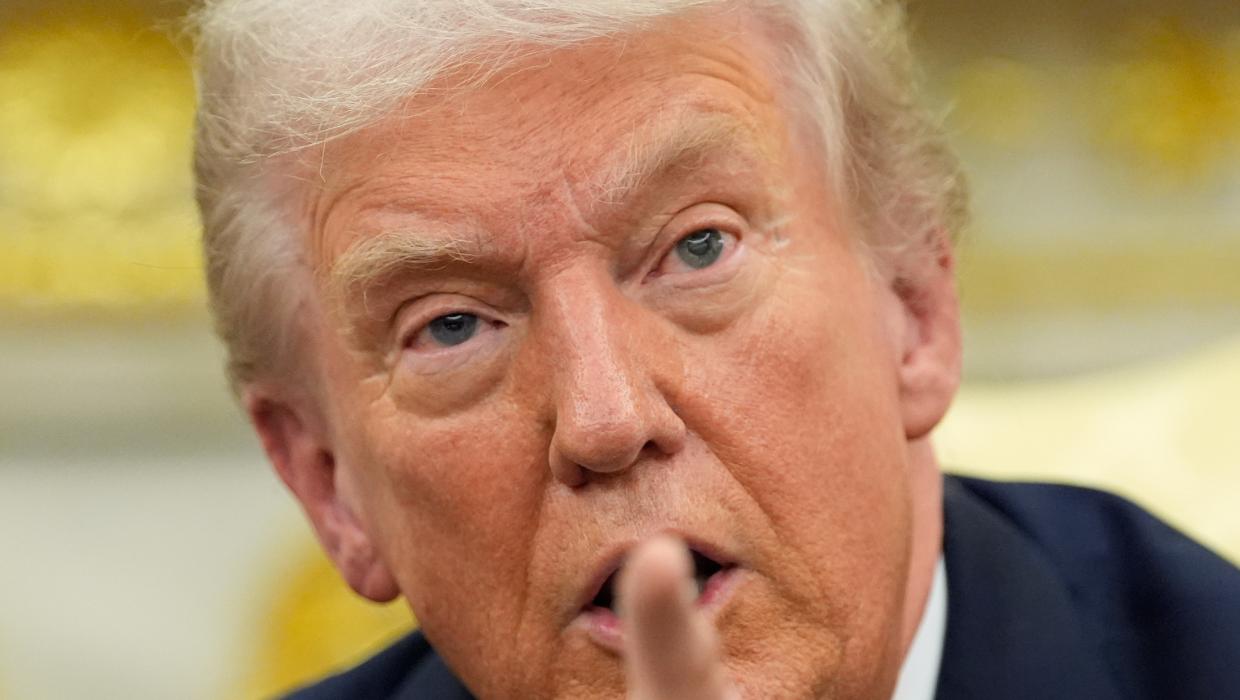Politics
Trump Threatens Military Action in Nigeria Over Religious Violence

The situation in Nigeria has escalated following a strong statement from U.S. President Donald Trump, who threatened “vicious” military action in response to the violence against Christian communities in the country. This declaration has sparked confusion and alarm among various stakeholders in Nigeria and the international community.
Trump’s comments came during a press conference on July 10, 2023, where he accused the Nigerian government of failing to protect its citizens, particularly Christians, from persistent attacks. He claimed that the government has allowed “the killing of Christians” to continue unchecked, which he described as a grave concern. His remarks have raised questions about the implications for U.S.-Nigeria relations and the potential for foreign intervention.
Concerns Over Religious Violence
The backdrop to Trump’s statement is a troubling pattern of violence against Christians in Nigeria, often attributed to extremist groups such as Boko Haram and other militant factions. Reports indicate that thousands of Christians have been killed in recent years, with entire communities displaced due to ongoing conflicts. According to Amnesty International, over 3,000 Christians were killed in Nigeria between January 2021 and June 2022 alone.
The Nigerian government has faced increasing criticism for its handling of security and religious freedom. While President Muhammadu Buhari has condemned the violence, many argue that his administration has not done enough to protect vulnerable populations. Trump’s threat of military action has added pressure on the Buhari government, forcing it to address the growing unrest more urgently.
The U.S. President emphasized that his administration is prepared to take direct action if necessary, stating that he would go in “guns-a-blazing” if the Nigerian authorities do not take immediate steps to address the violence. This aggressive stance marks a significant shift in U.S. foreign policy towards Nigeria, which has traditionally been characterized by diplomatic engagement rather than military intervention.
Global Reactions and Implications
Reactions to Trump’s remarks have varied widely. Some Nigerian officials have expressed concern over the implications of U.S. military involvement, fearing that it could exacerbate tensions within the country. Others view the statement as a wake-up call for the Nigerian government to prioritize the protection of its citizens.
International observers have also weighed in, noting that Trump’s comments could complicate the already delicate situation in Nigeria. Many human rights organizations are urging the Nigerian government to improve its security measures and to foster dialogue among different religious communities to address the root causes of violence.
As the situation develops, the international community will be closely monitoring Nigeria’s response to Trump’s threats and the ongoing violence against Christians. The potential for increased military engagement raises significant questions about the future of U.S.-Nigeria relations and the broader implications for regional stability in West Africa.
In conclusion, Trump’s alarming statement has intensified focus on the critical issue of religious violence in Nigeria. With the world watching, the need for effective governance and protection of all citizens has never been more urgent.
-

 World3 months ago
World3 months agoTest Your Knowledge: Take the Herald’s Afternoon Quiz Today
-

 Sports3 months ago
Sports3 months agoPM Faces Backlash from Fans During Netball Trophy Ceremony
-

 Lifestyle3 months ago
Lifestyle3 months agoDunedin Designers Win Top Award at Hokonui Fashion Event
-

 Sports3 months ago
Sports3 months agoLiam Lawson Launches New Era for Racing Bulls with Strong Start
-

 Lifestyle3 months ago
Lifestyle3 months agoDisney Fan Reveals Dress Code Tips for Park Visitors
-

 Health3 months ago
Health3 months agoWalking Faster Offers Major Health Benefits for Older Adults
-

 World3 months ago
World3 months agoCoalition Forms to Preserve Māori Wards in Hawke’s Bay
-

 Politics3 months ago
Politics3 months agoScots Rally with Humor and Music to Protest Trump’s Visit
-

 Top Stories3 months ago
Top Stories3 months agoUK and India Finalize Trade Deal to Boost Economic Ties
-

 Entertainment3 months ago
Entertainment3 months agoExperience the Excitement of ‘Chief of War’ in Oʻahu
-

 World3 months ago
World3 months agoHuntly Begins Water Pipe Flushing to Resolve Brown Water Issue
-

 Science3 months ago
Science3 months agoNew Interactive Map Reveals Wairarapa Valley’s Geological Secrets









